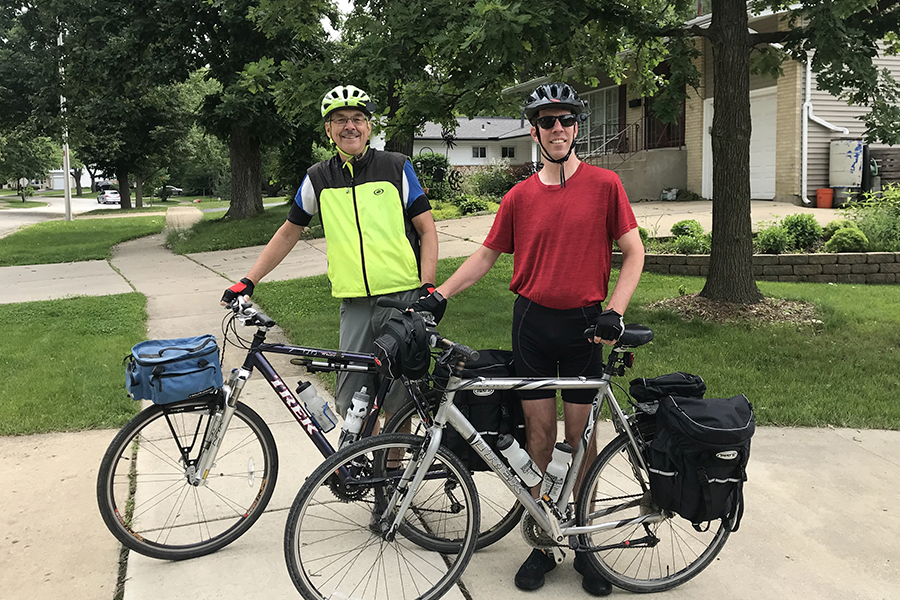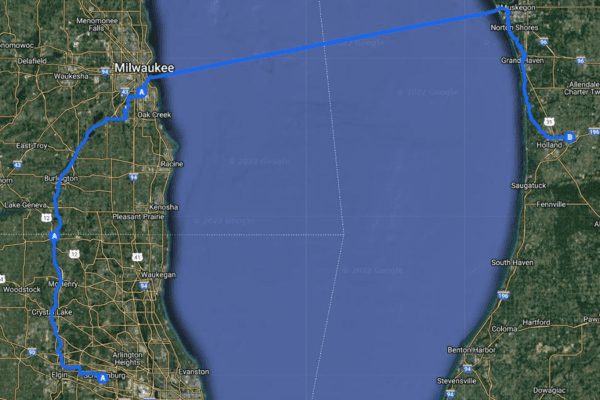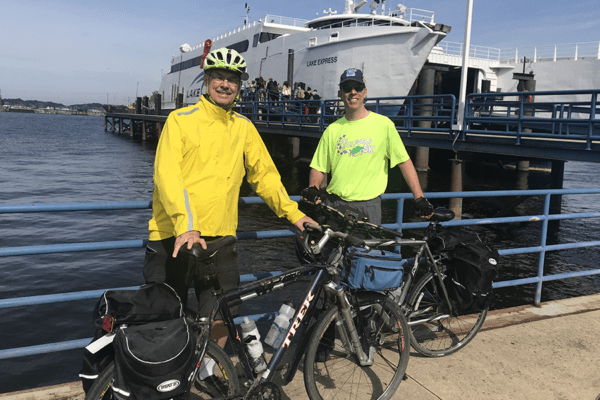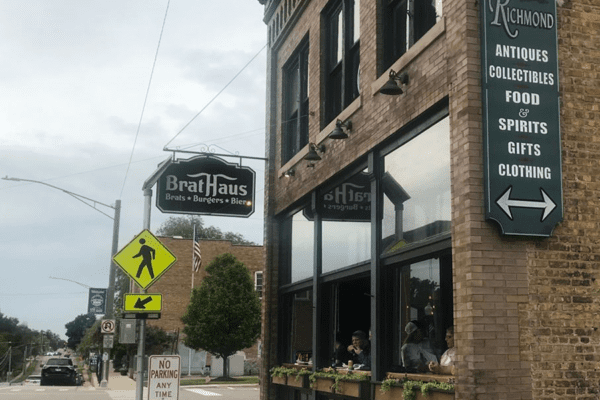
At Civiltech, our engineers take design and connectivity of bike trails seriously. When not designing, improving, or working to connect our region’s bike trail networks, we are using them!
In June, Civiltech’s Steve Pautsch, P.E., PTOE, together with his dad Bob Pautsch, headed out for a family vacation in South Haven, Michigan . . . by bike! The 145-mile expedition took three days and included an 80-mile ferry ride across Lake Michigan.
Steve and Bob already had a strong knowledge of local bike route networks, but with the goal of reaching the ferry terminal in Milwaukee, they researched a route that that would involve more heavily utilize trails and less on-road biking. Beginning in Schaumburg, Steve and Bob had charted a route that initially headed west to access their desired trails. Then they traveled north through Illinois and northeast through Wisconsin to Milwaukee.
The duo were already familiar with the US Bicycle Route System (USBRS), which is a national cycling route network that connects multiple types of infrastructure, including off-road paths, bike lanes, and lightly-traveled roads to accommodate long-distance and cross-country biking. However, to plan their specific route, they also utilized Google Maps bike routing functions.
On the first day of the trip, they utilized regional Illinois trails, including Poplar Creek Trail, Fox River Trail, and Prairie Trail which provided a smooth and comfortable 50-mile trek to Richmond, Illinois. The second day, with the challenge of a hillier ride into southeastern Wisconsin’s glacial terrain, they completed the next 50-miles taking them to Milwaukee via parts of the Seven Waters Trail and Oak Leaf Trail. Finally, the last day involved a 6:00 am ferry departure for a 2 ½ -hour ride across Lake Michigan, with a final biking leg southward along the lakefront on US Bike Route 35 in Michigan.
Steve’s primary takeaway from the experience is that traveling by bike utilizing trail networks is a great way to slow down, take the scenic route, and get to know the small towns you travel through. Bike routes provide economic benefits for small towns that may otherwise get passed by and provide the opportunity to support local businesses such as shops and cafes. Also, Steve said that the most rewarding facet of the trip was the opportunity to meet people along the way, both the residents of the communities in through which they traveled and the other users of the trails.
A successful bike trip utilizing regional trail networks reinforces the importance of Civiltech’s commitment to Complete Streets design. We greatly value the opportunity to improve pedestrian and bike infrastructure and to ensure that bike routes are easily accessible and have strong local, regional, and even national connectivity.
